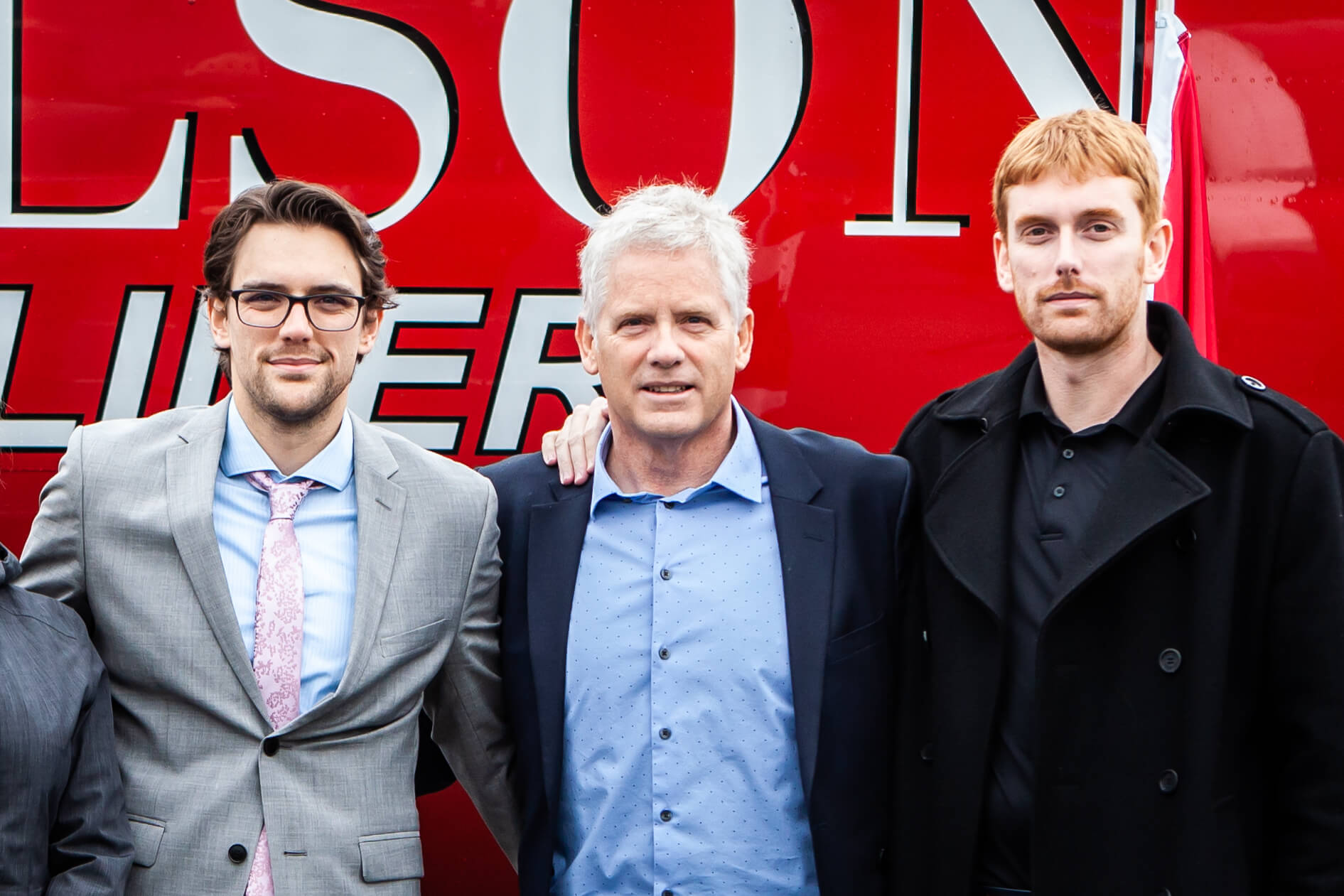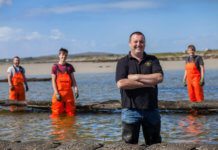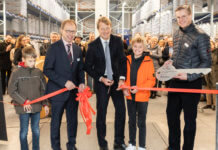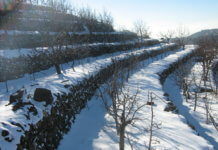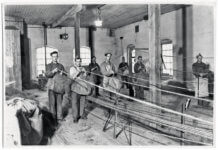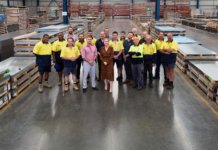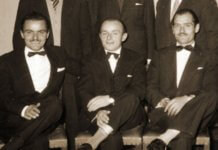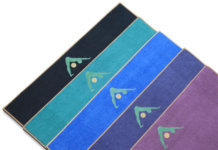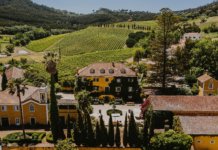Cliff Coulson was a Canadian war hero and frontiersman – a tank and bulldozer operator who assisted allied troops in the Second World War. He was equally fearless in business. On his return from the war, he continued to excavate on Vancouver Island and, in 1960, founded a logging business that would become one of the most successful forestry companies in North America.
The Coulson Group continues to build on Cliff Coulson’s legacy. Cliff’s son Wayne took over when his father became ill in the early 1980s. Wayne attributes the group’s continued success to their repeated reinvention. Their interests now extend well beyond timber into aviation, environmentally friendly cleaning solutions and more.
The health of their business is the result of intergenerational collaboration. Wayne Coulson gave his sons Foster and Britton space to learn by making mistakes, as well as the license to execute instinctively and with freedom. Their adroitness, coupled with Wayne’s vision to pursue niche markets, has seen the company develop and expand on its existing competitive advantages.
Tharawat Magazine sat down with Wayne, Britton and Foster to talk about trust between fathers and sons, sustainability and the group’s indefatigable culture of innovation.
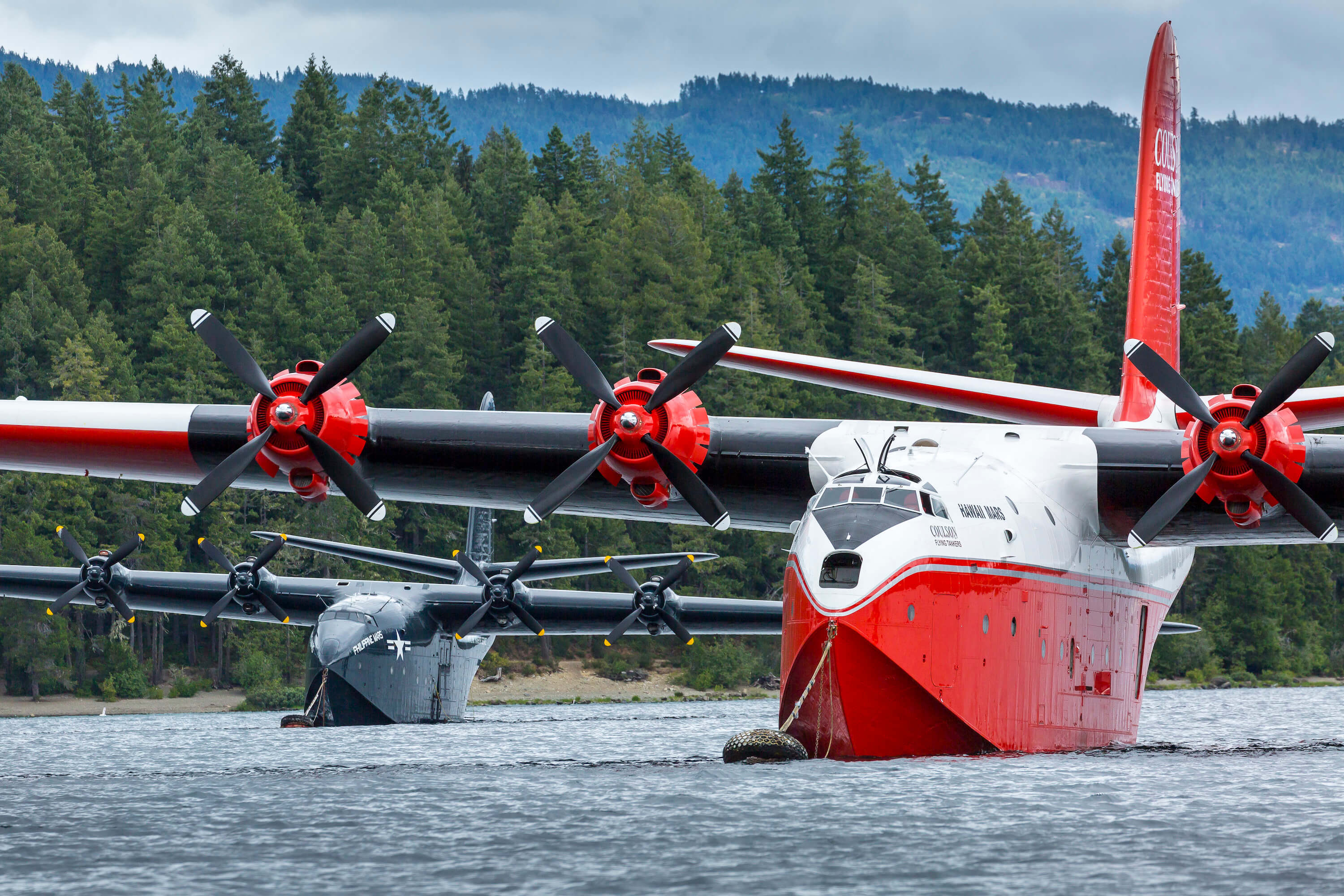
How did the Coulson Group move from logging into aviation, environmentally friendly cleaning systems and more?
Wayne: After I took over from my father in the mid-1980s, we had the vision to log trees on top of mountains. Initially, however, we couldn’t figure out how to get the lumber down. Heavy-lift helicopters were the ideal solution – that’s how we ended up purchasing our first aircraft.
We then convinced the government to put up some tenure for helicopter logging. Over ten years, we were allocated a million cubic meters, which is a lot of timber.
We bought our first S-61 helicopter in 1986. From there, we continued to build, one step at a time. By the mid-1990s, we had four S-61s and six logging sites up and down the coast. We had a lumber manufacturing facility operating around the clock with 900 employees and were also firmly entrenched in the aviation industry.
However, the softwood lumber dispute that began in the early 2000s with the US limited the amount of timber we could export. We were forced to scale the business back.
“…We’re never going to outspend our competition – we’re going to out-think them. That’s foundational to our success.”
How are you able to navigate such volatility?
Wayne: As a family business involved in cyclical markets, we have to reinvent ourselves every three to five years. That’s something we’ve learned over time. Not only do we have to differentiate ourselves and maintain our competitive advantage, but we also have to exercise proactive decision-making so we can get back up again if we fall.
When we started the helicopter business, for example, there were 20 jobs, and we owned two helicopters. Seven years later, we had 20 helicopters, and there were only two jobs. We were forced to reinvent ourselves. The ability to do so continuously translates to resiliency.
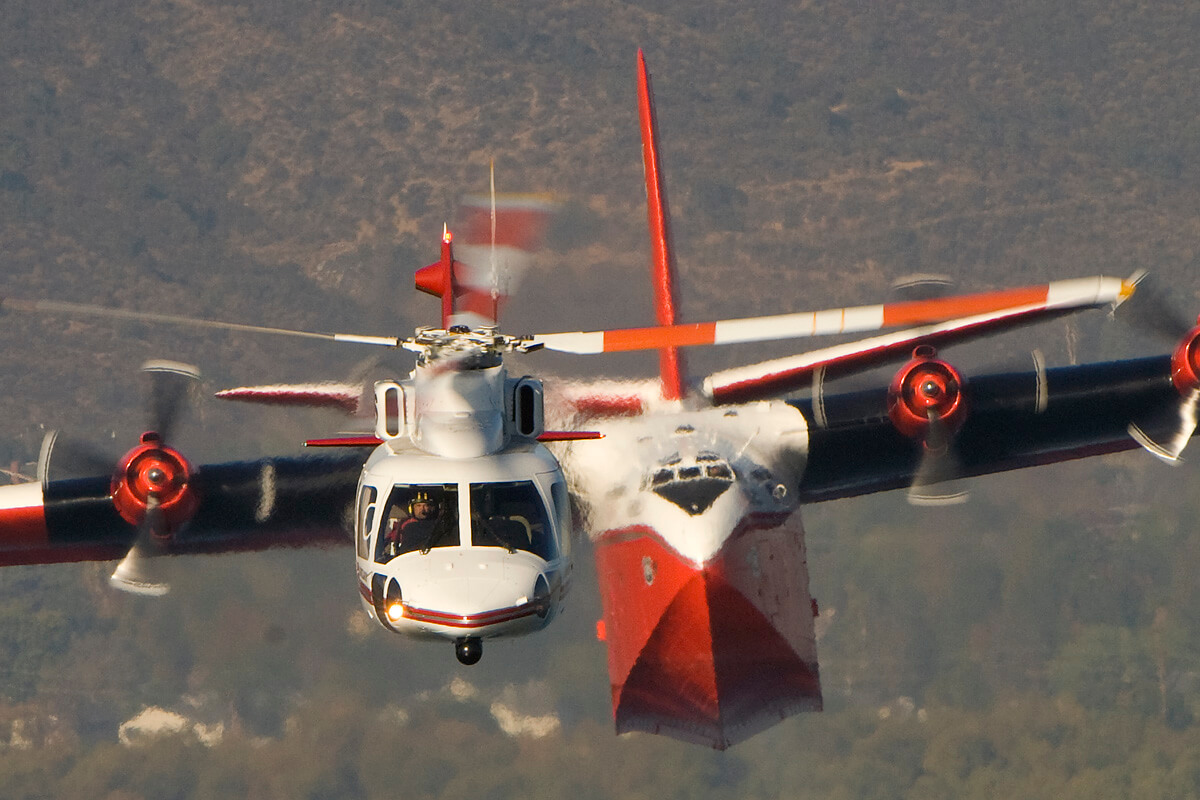
Also, we’re never going to outspend our competition – we’re going to out-think them. That’s foundational to our success. As a family, including my wife, Suzan, we’re hard workers. The kids are hard workers – nothing was given to them. They work around the clock just like my dad and I did; that work ethic is the driver behind our success.
Was it always clear that you would hand this business down, just as your father did?
Wayne: As parents, we’re lucky because not all family businesses are as healthy as ours is. Our children decided to involve themselves in the business, and they’re passionate about what they do.
One of the things I give my father credit for is that he knew it had to become my business because I couldn’t run the business his way or it would fail.
Our vision is continuity. We hope our grandchildren will have the same opportunities that our boys created for themselves. Presently, we’re working with a family enterprise program, which is helping us build a strong foundation for the future.
Britton, Foster, was it always clear to you that you would join the family business and which area?
Foster: For me, it’s about passion for the business itself, which is not tied to any particular industry that we operate in. It’s the excitement of making deals, watching the company succeed and contributing to its growth. The Coulson Group has always been part of our lives – a perennial topic at the dinner table – so working at the family business came naturally.
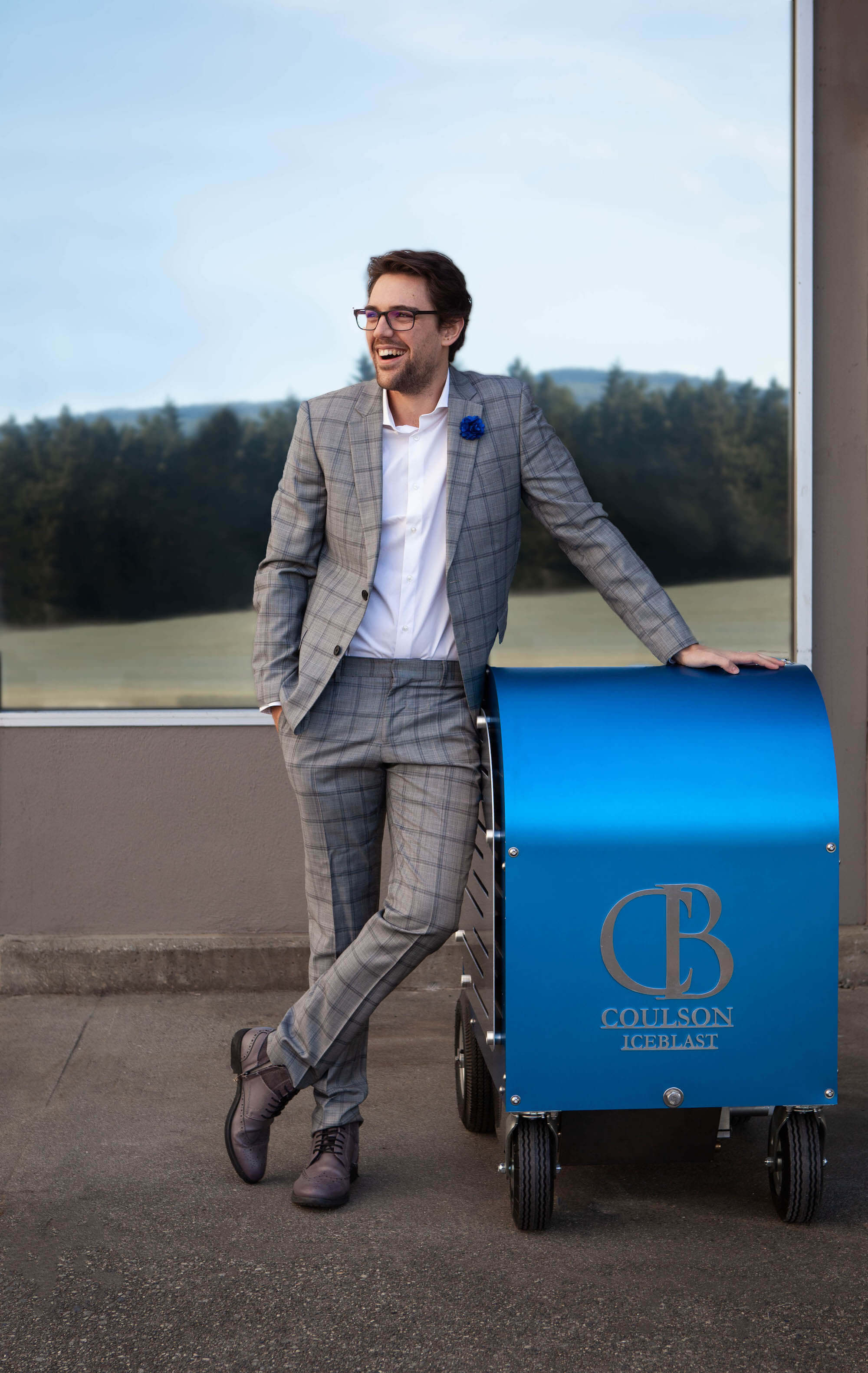
Britton: We bought our first helicopter the year that I was born; ever since I was little, I’ve been fascinated by the aviation business. Even before I graduated from high school, I was at the airport every chance I had. I’ve always wanted to work for the family business.
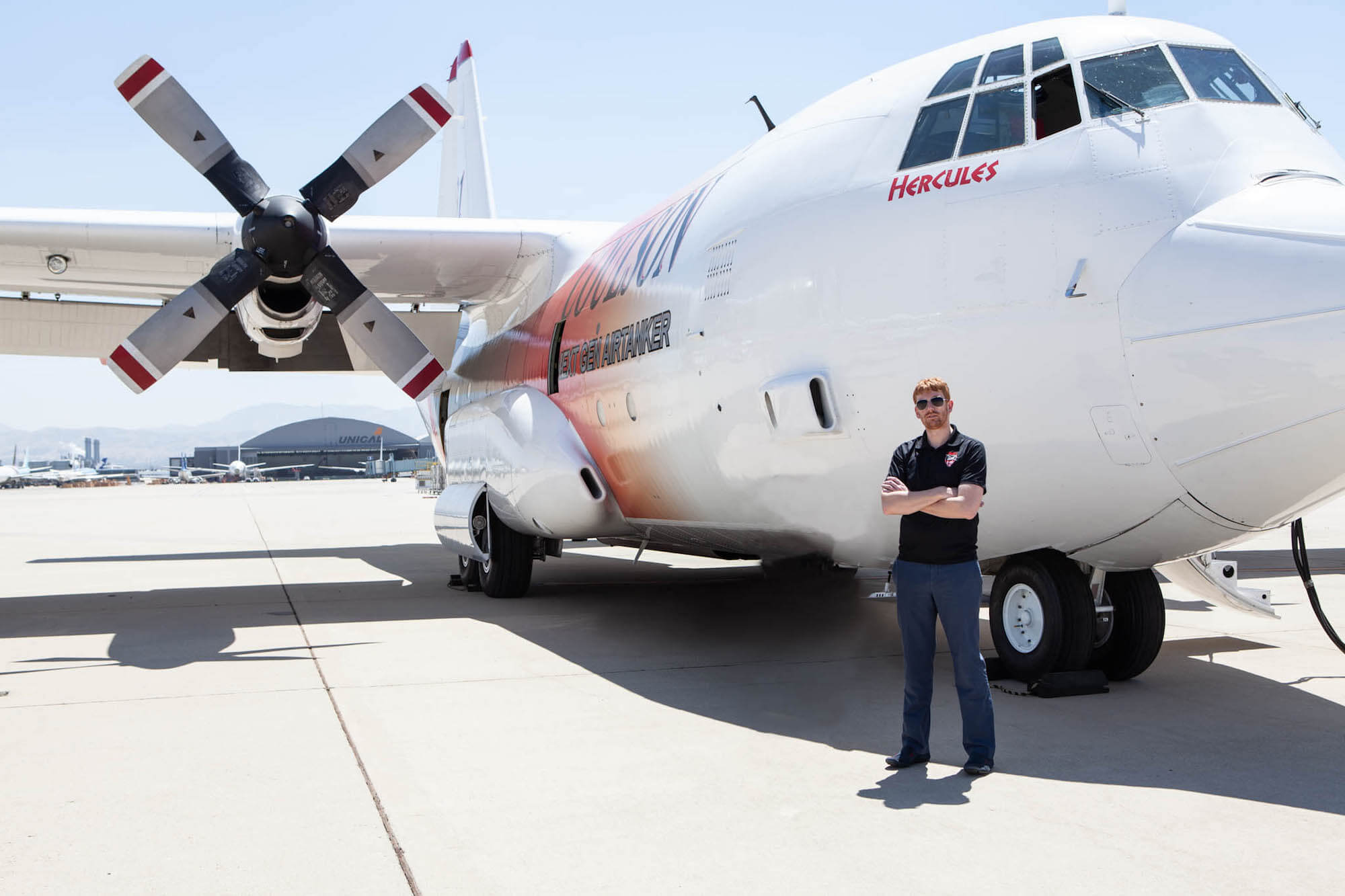
How is new technology impacting your competitiveness in the aviation sector?
Britton: I’m surrounded by a younger management team, and they’re integral to our success. They’re comfortable with new technology, which means we put a greater emphasis on engineering than our competitors.
For that reason, we’re at the cutting edge of our industry. We integrate the latest military technology we have access to. The S-61, for example, has a military variant, and the C-130s we own are ex-military. Furthermore, many of our team members are ex-military.
Dad’s vision, coupled with our leadership and the ability to execute at an operational level, is a recipe for success that no one else in the industry has.
How is climate change impacting your operations and how does it tie into your mission for sustainability?
Britton: The aerial firefighting side of our business is certainly feeling the effects of global warming. As the trend toward warmer weather continues and populations keep growing, we are seeing an increase in wildfire activity. More people want to live in the wilderness, which creates more urban interface fires where there are lives and property at risk. Aerial firefighting is a growing industry in almost every country.
Foster: From the business sustainability point of view, the market is getting more knowledgeable on what wildfires are and how to fight them. It’s exciting for us because we operate large aircraft that drop water on condensed areas to deal with intense fires. We are well-positioned as a global business; right now, we’re looking to Europe and South America as our next frontiers.
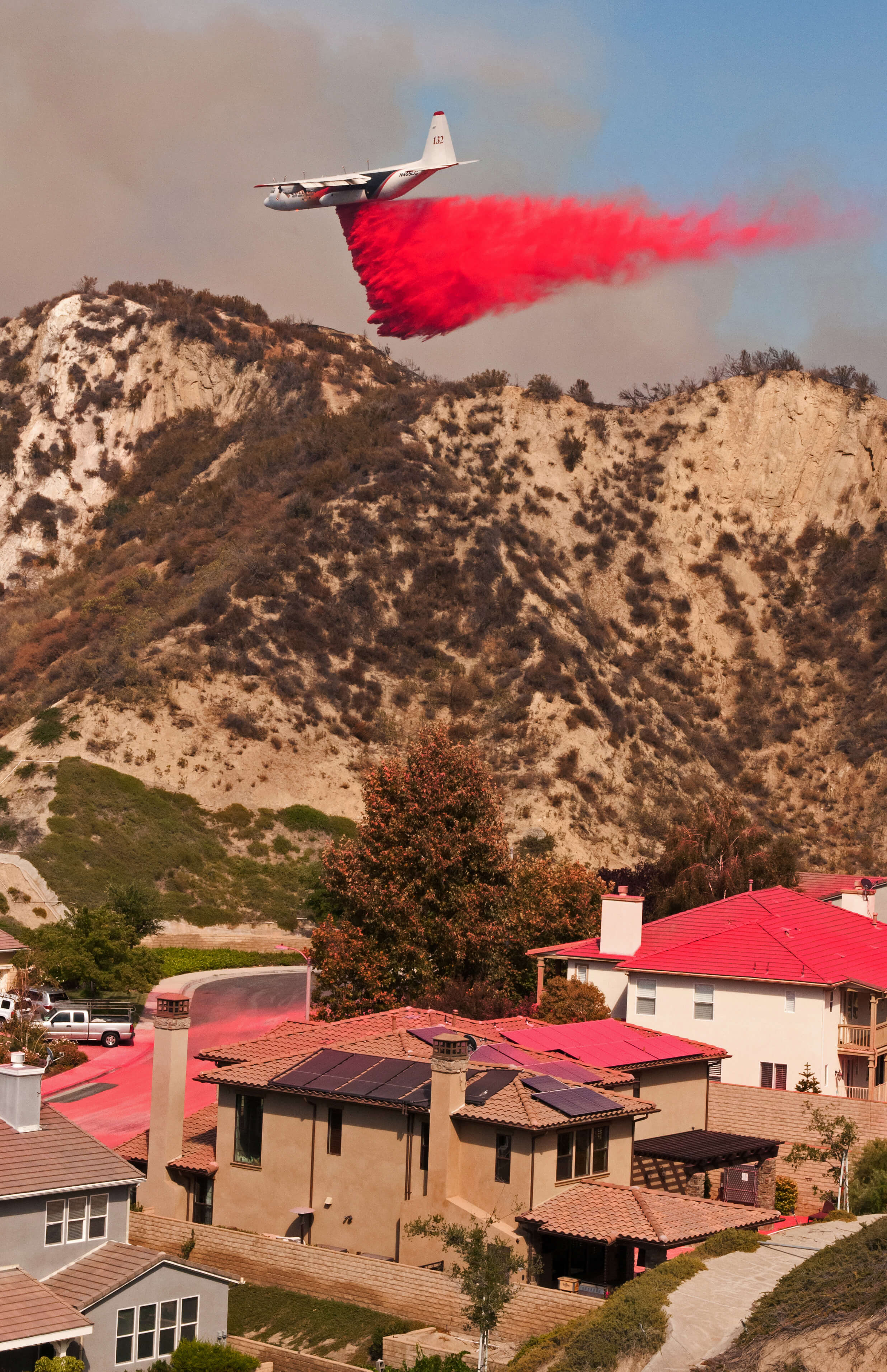
Environmental sustainability is a priority for the Coulson Group. Ice Blast for example, an innovative cleaning system that utilises ice or dry ice, requires 98 per cent less water than existing pressure washers and does a better job. It doesn’t create any airborne contaminants yet offers a high level of performance.
We’re continuing to develop this technology at an extraordinary pace so we can implement smaller systems in several layers of industry. Replacing pressure washing with an environmentally friendly alternative is our end goal.
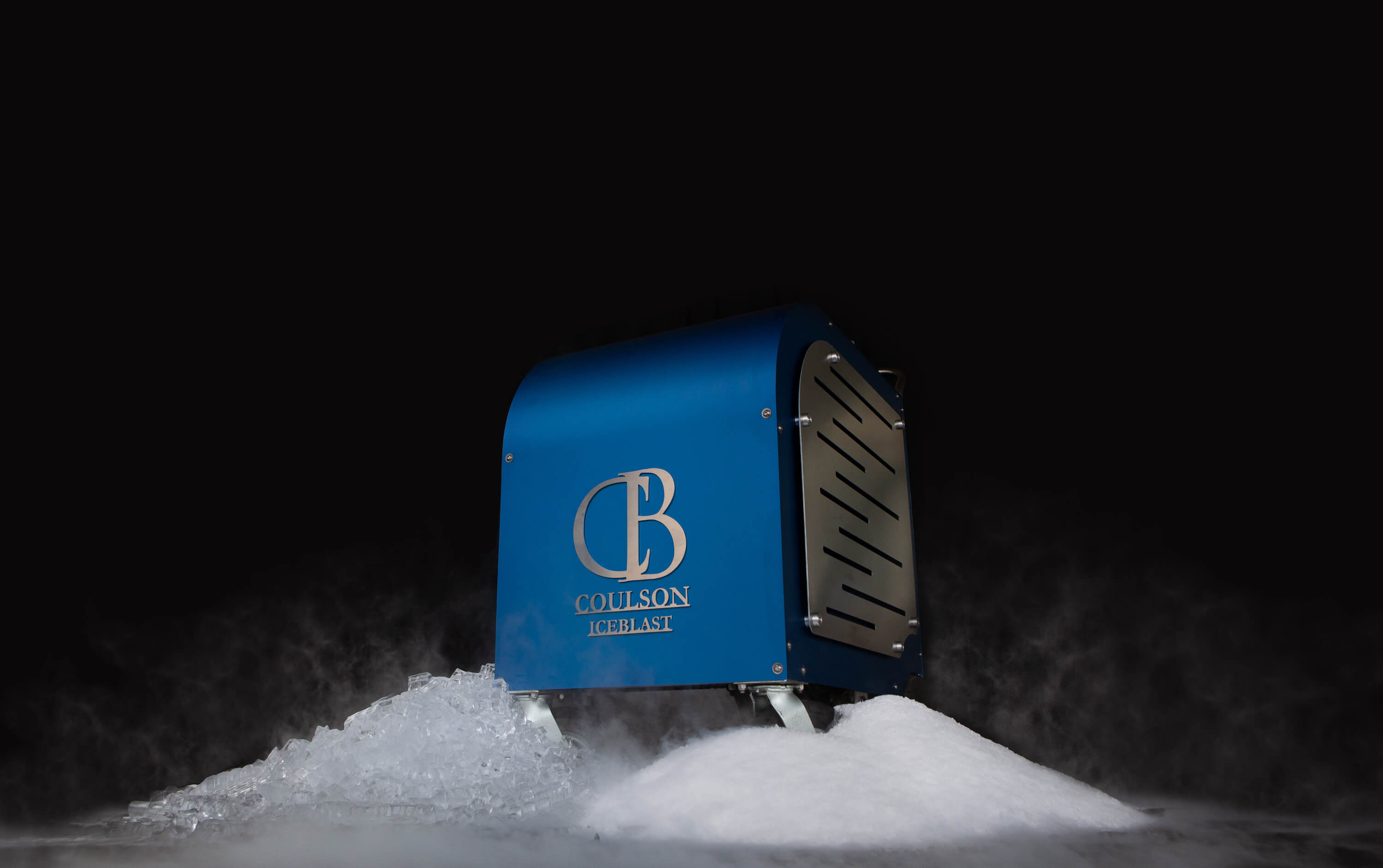
Wayne, how did you encourage this culture of innovation both in the Coulson Group and in your two boys?
Wayne: My wife and I took our kids with us wherever we went when they were growing up. We are a very close family, and my wife deserves the credit for how they turned out.
In terms of business strategy, our objectives and goals are different from other companies’ in that my focus has been in steering us away from commodities – many companies log timber worldwide – and towards niche markets like firefighting. There’s only one company in the world that operates heavy aeroplanes and helicopters, and that’s us.
We’re unique by design both in aerial firefighting and in industrial cleaning. The boys can draw on the rapid pace of technological transformation, and it’s been fun to watch them integrate it.
Foster: The firefighting and industrial cleaning arms of the Coulson Group complement each other. For example, there was a fire in Ballarat, Australia a few years ago. Coulson aircraft came in to control the fire and, within a couple of weeks, the service contractors cleaned it up using Coulson Ice Blast equipment.
In terms of dynamic, our success is the direct result of dad’s significant trust in Britton and me. Generally, in family businesses, the third generation is typified by failure. However, we were allowed space to create, make mistakes and build something that we’re passionate about.
How do you ensure non-family employees stay engaged and motivated?
Wayne: It’s all about leadership. Foster and Britton lead by example, have the trust of their employees and provide the constant communication that people require. We need people to believe in us, and that’s where the boys have excelled.
Foster: Culture is crucial, and part of building culture is having shared goals – a mission that everybody works towards. We’ve put a significant amount of time and energy into finding like-minded individuals who buy into our mission. That’s what drives the business forward.
What do you hope to see for the future of the Coulson Group?
Foster: I want to build something that will last – a business offering products and services that make a difference. Our team members feel the same way. Supporting each other so we can collectively achieve these goals is the key to a successful future.
Wayne: We put our name on what we own so our employees and customers know they can depend on us; we’re accountable. It’s imperative that we protect that name and continue to communicate its integrity as we move towards our 60th anniversary in business.
Family business means making significant sacrifices. We’re also trying to create more space for family because sometimes, the business is all-consuming. Going forward, we’re looking to build a healthy balance in our business. I wish to give others the same opportunities the boys and I had – and, hopefully, their kids will have – building a secure future for the family and the family name.


